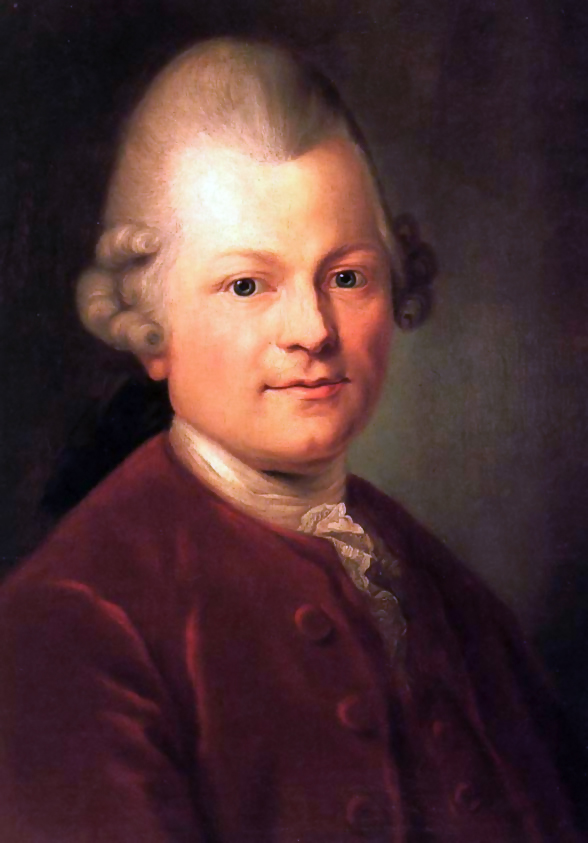Произведение
Эмилия Галотти
Готхольд Эфраим ЛессингГотхольд Эфраим Лессинг знаменитые цитаты
Готхольд Эфраим Лессинг Цитаты о мужчинах
живопись
Источник: Лаокоон, или О границах живописи и поэзии
Готхольд Эфраим Лессинг Цитаты о женщинах
Готхольд Эфраим Лессинг цитаты
поэт
Источник: Лаокоон, или О границах живописи и поэзии
Вариант: Солдатом надо быть во имя отчизны или из любви к делу, за которое идешь в бой. Без цели служить сегодня здесь, а завтра там — значит быть подручным мясника, не более.
существо
Источник: Лаокоон, или О границах живописи и поэзии
Готхольд Эфраим Лессинг: Цитаты на английском языке
“Possession makes one passive, indolent, and proud.”
Anti-Goeze (1778), as quoted in God Is Not Great (2007), by Christopher Hitchens , Ch. 19
Контексте: The true value of a man is not determined by his possession, supposed or real, of Truth, but rather by his sincere exertion to get to the Truth. It is not possession of the Truth, but rather the pursuit of Truth by which he extends his powers and in which his ever-growing perfectibility is to be found. Possession makes one passive, indolent, and proud. If God were to hold all Truth concealed in his right hand, and in his left only the steady and diligent drive for Truth, albeit with the proviso that I would always and forever err in the process, and offer me the choice, I would with all humility take the left hand, and say: Father, I will take this one—the pure Truth is for You alone.
Anti-Goeze (1778), as quoted in God Is Not Great (2007), by Christopher Hitchens , Ch. 19
Контексте: The true value of a man is not determined by his possession, supposed or real, of Truth, but rather by his sincere exertion to get to the Truth. It is not possession of the Truth, but rather the pursuit of Truth by which he extends his powers and in which his ever-growing perfectibility is to be found. Possession makes one passive, indolent, and proud. If God were to hold all Truth concealed in his right hand, and in his left only the steady and diligent drive for Truth, albeit with the proviso that I would always and forever err in the process, and offer me the choice, I would with all humility take the left hand, and say: Father, I will take this one—the pure Truth is for You alone.
“Trust no friend without faults, and love a maiden, but no angel.”
As quoted in Dictionary of Quotations from Ancient and Modern English and Foreign Sources (1899) by James Wood, p. 499
“What is a hero without love for mankind?”
Was ist ein Held ohne Menschenliebe?
Philotas http://www.gutenberg.org/dirs/etext05/8phts10.txt (1759), Act 1, Scene 7
“To look forward to pleasure is also a pleasure.”
Und ein Vergnügen erwarten, ist auch ein Vergnügen.
Minna von Barnhelm https://books.google.it/books?id=3XIHAAAAQAAJ&pg=PA84#v=onepage&q&f=false (1763), , Act IV, scene VI
“Man, whence is he?
Too bad to be the work of a god, too good for the work of chance.”
Der Mensch, wo ist er her?
Zu schlecht für einen Gott, zu gut fürs Ungefähr.
As quoted in Dictionary of Quotations from Ancient and Modern English and Foreign Sources (1899) by James Wood, p. 61
Вариант: Man — who is he? Too bad to be the work of God; Too good for the work of chance!
Nathan the Wise http://www.gutenberg.org/dirs/etext03/natws10.txt (1779), Act II, scene II
“The worst of superstitions is to think
One's own most bearable.”
Nathan the Wise (1779), Act IV, scene II http://www.gutenberg.org/dirs/etext03/natws10.txt
Variant translation: The worst superstition is to consider our own tolerable.
Es ist unendlich schwer, zu wissen, wenn und wo man bleiben soll, und Tausenden für einen ist das Ziel ihres Nachdenkens die Stelle, wo sie des Nachdenkens müde geworden.
Letter to Moses Mendelssohn, January 9, 1771
“It is the mark of great people to treat trifles as trifles and important matters as important.”
Denn zu einem großen Manne gehört beides: Kleinigkeiten als Kleinigkeiten, und wichtige Dinge als wichtige Dinge zu behandeln.
Hamburgische Dramaturgie http://www.gutenberg.org/files/10055/10055-8.txt (1767 - 1769), Vierunddreißigstes Stück Den 25. August 1767
“Better counsel comes overnight.”
Besserer Rat kommt über Nacht.
Emilia Galotti (1772), Act IV, scene III
Eben die Bahn, aus welcher das Geschlecht zu seiner Vollkommenheit gelangt, muß jeder einzelne Mensch (der früher, der später) erst durchlaufen haben.
The Education of Mankind, § 93
Perlen bedeuten Tränen.
Emilia Galotti http://www.gutenberg.org/dirs/etext05/7mlgl10.txt (1772), Act II, scene VIII
